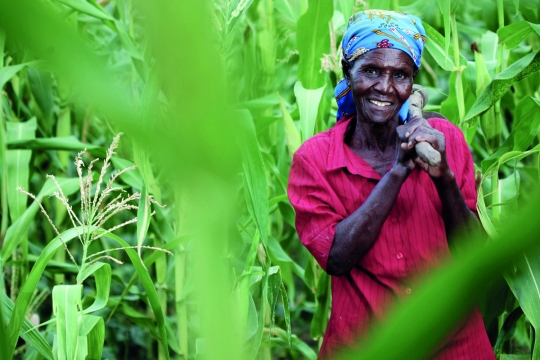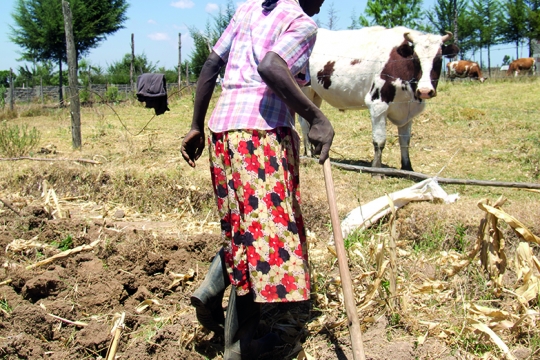A recent study in Kenya shows that climate change and variability will increase food insecurity and that different food crops will respond differently to climate change variables. The study also highlights the different factors influencing food insecurity in a changing climate. This is important information for farmers as well as the government.
Climate change and climate variability affect weather patterns and cause changes in historical patterns of seasonal temperature and rain, on which farmers have long relied in making crop-planting decisions. This is exerting pressures on agricultural systems and threatening to significantly increase the number of people at risk of food insecurity. This is especially true in regions where there is over-reliance on rain-fed agriculture, high levels of poverty, low levels of education, inadequate access to financial capital and poor infrastructure.
More information about climate change impact is needed
In Kenya, the problem is further exacerbated by the fact that 80% of total land cover is arid and semi-arid. Climate change is causing harvest failure, deteriorating pasture conditions, decreased water availability and livestock losses in both farming and pastoral communities, especially in these regions. Therefore, information on how different stakeholders can help manage the adverse impacts of climate change and reduce the threat of food insecurity is important in tackling the climate change challenge. It is against this background that a research team led by the EfD Kenya Director, Prof Jane Kabubo-Mariara, sought to address the link between climate change and food insecurity in Kenya. This research was carried out on farm-level data from the same households over a decade on yields of four major crops (maize, beans, sorghum and millet), climate variables (precipitation, temperature, runoff, and total cloud cover), population, soil and agro-ecological zones data.
Food security and the climate change debate
This is not the first study to address climate change in Kenya, but previous studies have concentrated on the impact of climate change on crop and livestock productivity, and on adaptation to climate change. However, the link between climate change and food security in Kenya had not been explored. What Kabubo-Mariara and her co-author did was to introduce an important dimension of food security in the climate change and variability debate.
Their results have implications for all stakeholders, from farming households to the government. First, they are important in informing farming households, either directly or through their representatives – community-based or non-governmental organizations, etc. – about different technologies they can adopt in order to adapt to a changing climate. These potentially include drought-resistant crops and livestock. At the government level, the results can be used to determine the exact variables to be included in government strategies and action plans to combat climate change and variability. These include government-supported adaptation technologies, continuous climate change monitoring, intensified early warning systems and dissemination of relevant information to farmers in order to ensure that they adopt the appropriate adaption strategies.
Policy impact and the UN Sustainable Development Goals
The impact on policy from this research will be felt in both the short and long run. This is because the research can assist policy makers in drawing up and strengthening policies on adaptation to climate change. This research can also help shape decisions that benefit environmental development through interaction between academia and policy makers. This study further enhances knowledge on ways to improve food security, which is one of the main strategies for poverty alleviation and sustainable development.
Further, the outcomes of this research support the second and thirteenth UN Sustainable Development Goals, whose aims include ending hunger and achieving food security and improved nutrition, while promoting sustainable development and taking urgent action to combat climate change and its impact.
Researchers involved: Jane Mariara, Millicent Kabara
References: Kabubo-Mariara, J. and M. Kabara. 2015. “Climate Change and Food Security in Kenya.” EfD Discussion Paper
This story relates to SDG 1 and 2


